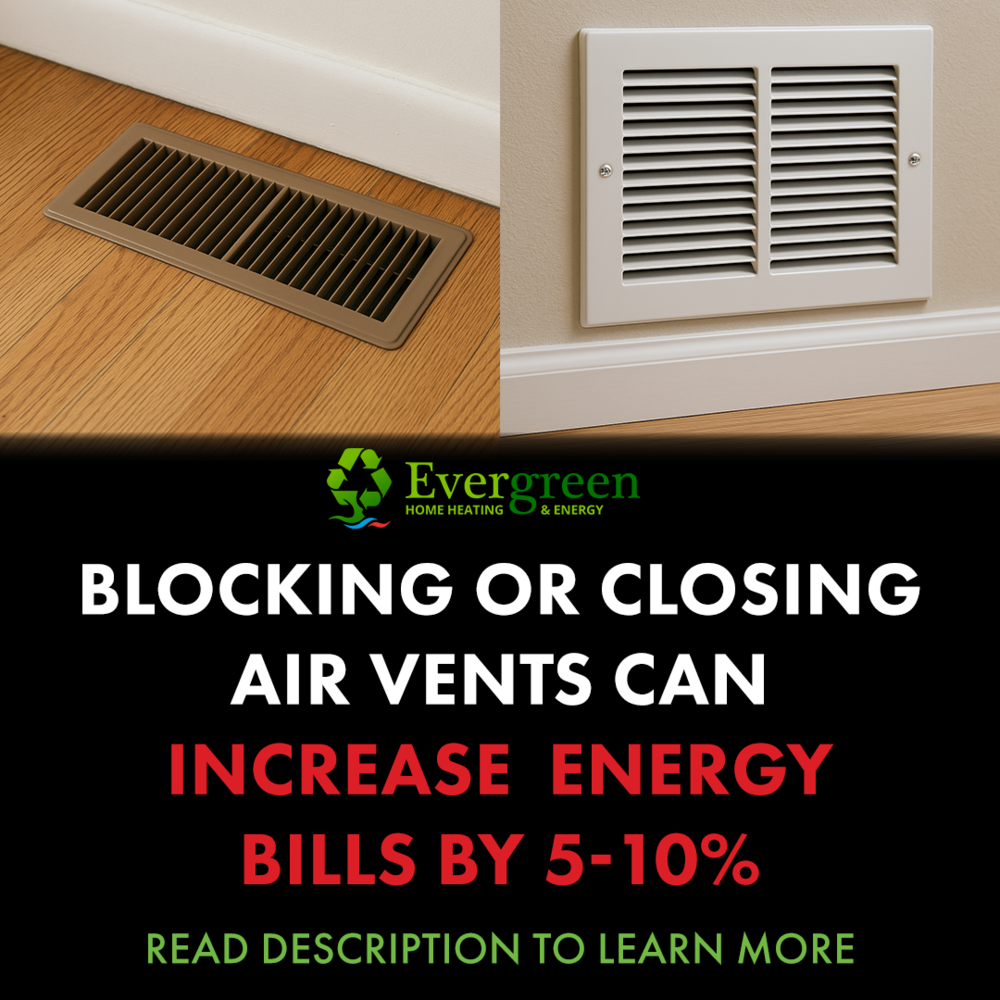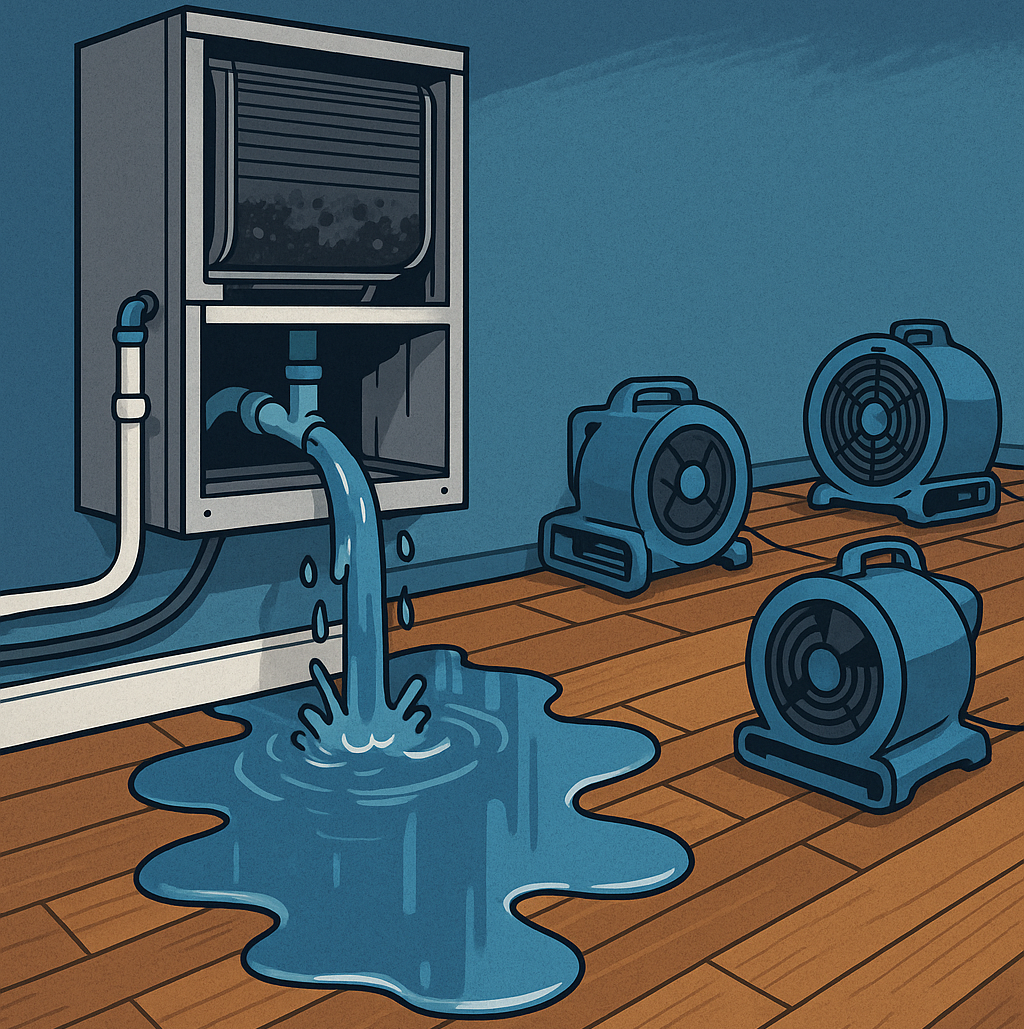What Happens to Your HVAC When You Close Vents?

When you shut or block vents, your furnace or AC still pushes the same amount of air. The air simply has fewer places to go, which causes problems inside the system.
1. Does closing vents increase pressure in the ductwork?
Yes. Closing vents raises static pressure in your ducts.
Higher pressure forces your blower motor to work harder, which can:
Increase wear and tear on the motor
Cause noisy airflow and duct leaks
Reduce system efficiency over time
2. Can closing vents damage my furnace or air conditioner?
Yes, over time it can. Reduced airflow can:
Cause frozen AC coils
Overheat the furnace and trigger safety switches
Stress or damage the compressor, one of the most expensive components
Lead to short cycling, where the system turns on and off too often
All of this adds up to more repairs and a shorter system life.
3. Why does my home feel less comfortable with vents closed?
Most homeowners close vents hoping to push more air to the rest of the house. In reality, you usually get:
Hot and cold spots
Rooms that never fully heat or cool
Temperature swings that are hard to control
Your system is designed for balanced airflow. When you block vents, that balance disappears, and comfort suffers.
4. How does closing vents affect indoor air quality?
Less airflow means your system:
Pulls less air through the filter, so dust and allergens linger
Controls humidity less effectively
Circulates stale air more often
If anyone in the home has allergies, asthma, or pets, closing vents can make air quality feel noticeably worse.
5. Can closing vents cause moisture or mold issues?
Yes, it can contribute. Restricted airflow can create:
Cold spots in ducts or walls
Condensation inside those spaces
Conditions where mold and mildew can grow
Mold cleanup and remediation are far more expensive than keeping vents open and airflow healthy.
How Much Money Do Homeowners Lose by Closing Vents?
Energy-focused sites and HVAC experts report that closing vents generally increases, not decreases, energy use.
Research indicates that blocked vents can cause your system to use about 5–10% more energy as static pressure rises and efficiency drops.
For a home spending roughly $2,400 per year on heating and cooling, that’s about:
$120–$240 wasted every year in extra energy
Add in more frequent repairs and shorter equipment life, and the lifetime cost can reach hundreds to thousands of dollars.
So while closing vents feels like a money-saving trick, it usually becomes an invisible drain on your budget.
Why Do People Still Think Closing Vents Saves Energy?
The myth comes from older heating systems and the idea of “not conditioning rooms you don’t use.” Modern central HVAC systems are:
Sized and designed for whole-home airflow
Tested for specific airflow ranges
Much more sensitive to static pressure and restrictions
When we apply old logic to modern equipment, we unintentionally create problems.
What Should Homeowners Do Instead of Closing Vents?
If a room is too hot, too cold, or rarely used, there are smarter options than blocking vents.
Better Alternatives:
Balance the system: Adjust dampers in the ductwork (if installed) to distribute air more evenly.
Add or improve returns: More return air paths can help air move correctly back to the system.
Seal leaky ducts: Duct leaks waste conditioned air into attics, crawlspaces, or walls.
Improve insulation: Poorly insulated rooms will always feel off temperature.
Consider zoning: Zoning systems let you control different areas of your home separately.
Upgrade to variable-speed equipment: These systems handle airflow and pressure more efficiently.
A professional airflow and duct evaluation from an HVAC company like Evergreen HVAC can identify which solution makes the most sense for your home and budget.
FAQ: Quick Answers for Search & Voice Assistants
Is it bad to close vents in unused rooms?
Yes. Closing vents increases pressure in the ducts, reduces airflow, and can raise energy bills while putting stress on your furnace or AC.
Does closing vents save money on my energy bill?
No. Studies and field data show closing vents usually increases energy use by 5–10%, which can add $120–$240 per year for a typical home.
Can closing vents damage my HVAC system?
Over time, yes. It can contribute to frozen coils, overheating, duct leaks, and premature failure of components like the blower motor and compressor.
What’s the safest way to reduce heating and cooling costs?
Focus on airflow and efficiency, not blocking vents:
Seal and insulate ductwork
Improve attic and wall insulation
Upgrade to a high-efficiency or variable-speed system
Have a pro balance your system and check static pressure
Who can help me fix hot and cold spots without closing vents?
An HVAC professional can measure airflow, static pressure, and duct performance.
If you’re in our service area, Evergreen HVAC can:
Inspect your system
Recommend balancing, duct, or zoning solutions
Help you lower bills without risking damage to your equipment
Final Takeaway
Closing vents doesn’t save energy. It usually costs more, reduces comfort, and shortens the life of your HVAC system.
If you’re fighting uneven temperatures or high energy bills, don’t shut vents—fix airflow.
Ready to get to the root of the problem?
Contact Evergreen Home Heating and Energy to schedule a comfort and airflow check, and we’ll help your home feel better while your system works smarter, not harder.




